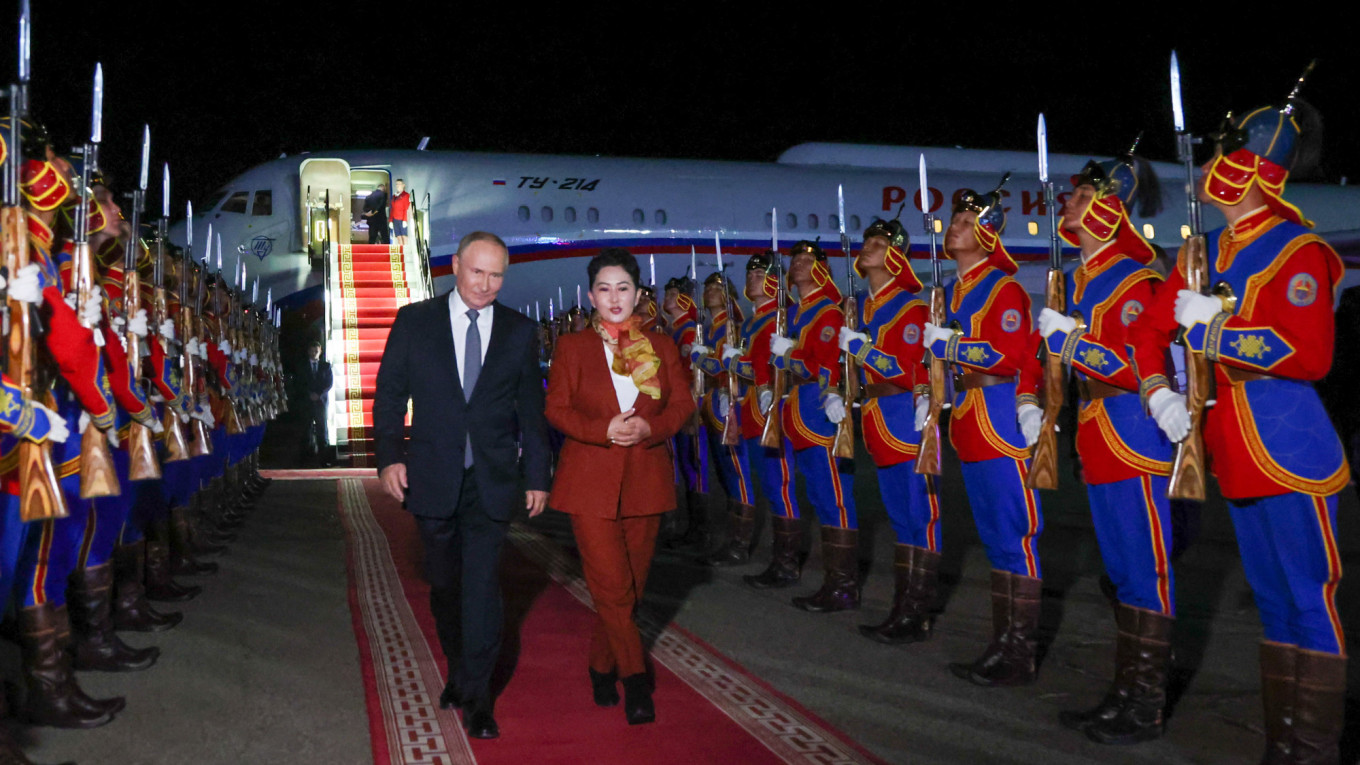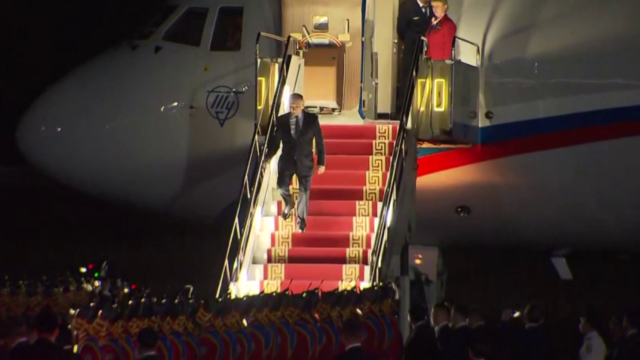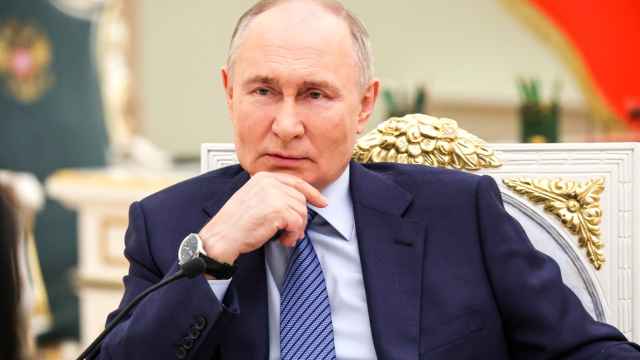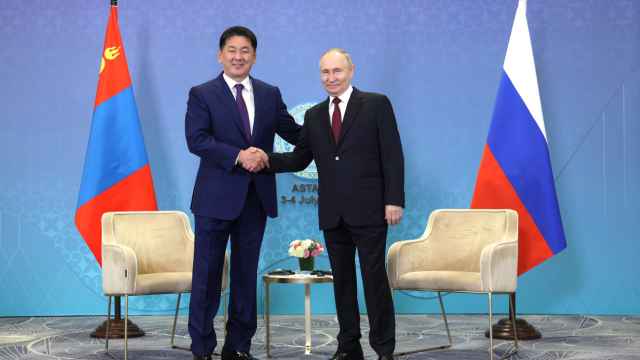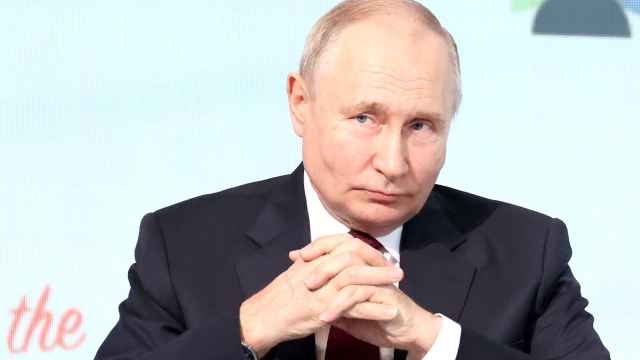Russian President Vladimir Putin’s arrival in Mongolia marks his first trip to an International Criminal Court (ICC) member state since the body issued a warrant for his arrest over the illegal deportations of Ukrainian children to Russia in March 2023.
While bolstering Putin’s defiance of the West, the visit carries wider implications for international law and brings Mongolia’s compliance with the ICC's Rome Statute into question, experts say.
Kremlin spokesman Dmitry Peskov assured reporters ahead of the trip that Moscow had “no worries” about authorities in Mongolia denying entry or arresting Putin upon arrival and that “all aspects of the visit were carefully prepared.”
“In accordance with customary international law, heads of state, heads of government and foreign ministers enjoy personal immunity in foreign courts,” said Sergey Vasiliev, an expert in international law at the Netherlands-based Open Universiteit.
“But the warrant was issued by the International Criminal Court, whose statute and jurisprudence do not recognize such immunities,” he said.
Like all states parties to the ICC, Mongolia is “under an obligation to execute” the arrest warrant for Putin, he added, noting that Mongolia’s failure to arrest him would “bring into question its compliance with the obligations under Articles 86-87 of the Rome Statute,” which it ratified in 2002.
The official pretext for Putin’s visit to Mongolia is to commemorate the 1939 Soviet-Mongolian victory over Japan in the Battle of Khalkhin Gol. His time in Mongolia is expected to be brief and limited to a few meetings in the capital Ulaanbaatar.
Analysts nonetheless agreed that Mongolia’s reluctance to act on its Rome Statute obligations will offer a much-desired boost for Putin’s image as a tough and untouchable leader despite the West’s efforts to turn him into a global pariah.
Expert Vasiliev said that beyond the symbolism of showing to the world that he is “not bothered by the warrant,” Putin will also get another chance “to drive a wedge” between the ICC’s Western members and the countries of the so-called Global South on the issue of supporting accountability for international crimes in Ukraine and elsewhere.
“Putin’s propaganda will exploit Mongolia's failure to arrest him…by showing that the arrest warrant against him was merely a result of Western lawfare and that the ICC prosecutor and the judges…simply did the collective West’s bidding,” Vasiliev told The Moscow Times.
“The problem is that it might trigger similar behavior on the part of other ICC states parties who are now sitting on the fence — those who are not supporting Ukraine and accountability efforts as much, who do not mind doing business with Putin and benefitting from Russia's war economy,” he added.
Ukraine’s Foreign Ministry on Friday called for Mongolia to comply with its international law obligations — a sentiment echoed by Human Rights Watch and several Russian opposition figures who published at least two joint letters to the Mongolian government on Monday.
“There is a sense of disappointment in many corners [of the international community] because Mongolia is often seen as a member of the democratic club of countries,” said Ivan Kłyszcz, an expert at the International Center for Defense and Security in Estonia.
“At the same time, there's also acceptance that Mongolia's relationship with Russia is unique in many ways…Because of the Cold War and imperial legacies, Russia still looms large over Mongolia, so there's only so much they can do,” Kłyszcz told The Moscow Times.
Last year, Putin was forced to skip the BRICS summit in ICC member South Africa after its government failed to guarantee that it would not arrest the wanted leader.
But for Mongolia, the benefits of a steady partnership with Russia might just outweigh the consequences of being named and shamed in the ICC.
Though the U.S. Embassy in Ulaanbaatar warned of potential anti-Putin protests on Tuesday and a small group of demonstrators gathered in the capital ahead of Putin’s arrival on Monday, potential pressure from civil society — unlike in South Africa — is also unlikely to change anything.
Putin would not be the first leader to have traveled to an ICC member state while having an active arrest warrant against him.
Former Sudanese President Omar al-Bashir, who was ousted in a coup d'état in 2019, traveled to several ICC states parties after the court issued an arrest warrant for him over committing multiple counts of crimes against humanity, war crimes and genocide.
Jordan, one of the ICC states parties visited by al-Bashir, was eventually found to have failed to cooperate with the Court by its Pre-Trial and Appeals Chambers, which also ruled that member states could not invoke immunities as a ground for refusing to arrest a wanted person or surrender them to the Court.
“It is rather concerning and very disappointing that Mongolia does not intend to honor its obligations under the ICC Statute. It's a major setback for Mongolia itself and for the international rule of law,” said Vasiliev, adding that Mongolia “will have to answer before the ICC Pre-Trial Chamber and, possibly, before the Assembly of States Parties.”
But expert Kłyszcz said he sees Putin’s latest evasion of justice as par for the course.
“I see this more as a continuation of Putin's project of dismantling international norms that already began with the invasion of Ukraine more than 10 years ago,” said Kłyszcz.
A Message from The Moscow Times:
Dear readers,
We are facing unprecedented challenges. Russia's Prosecutor General's Office has designated The Moscow Times as an "undesirable" organization, criminalizing our work and putting our staff at risk of prosecution. This follows our earlier unjust labeling as a "foreign agent."
These actions are direct attempts to silence independent journalism in Russia. The authorities claim our work "discredits the decisions of the Russian leadership." We see things differently: we strive to provide accurate, unbiased reporting on Russia.
We, the journalists of The Moscow Times, refuse to be silenced. But to continue our work, we need your help.
Your support, no matter how small, makes a world of difference. If you can, please support us monthly starting from just $2. It's quick to set up, and every contribution makes a significant impact.
By supporting The Moscow Times, you're defending open, independent journalism in the face of repression. Thank you for standing with us.
Remind me later.



